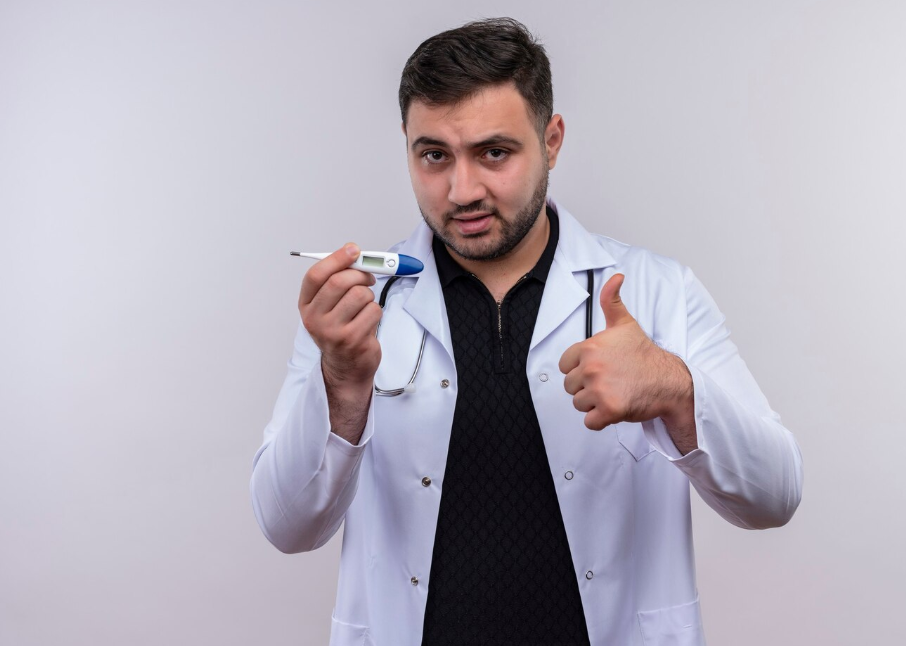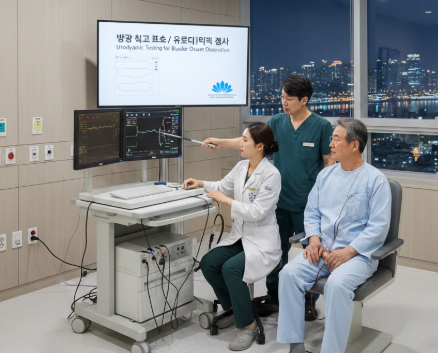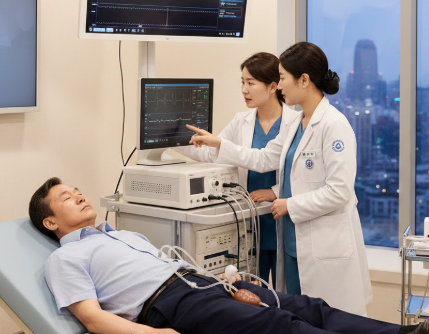When a couple or individual begins the journey toward assisted reproductive treatment—such as IVF, ICSI, or IUI—both partners undergo a comprehensive evaluation. While much attention is often given to female testing, the male fertility assessment is equally critical.
Fertility clinics follow a structured and evidence-based approach to evaluate male reproductive health, identify any underlying issues, and determine the best course of action to optimize treatment outcomes.
This guide breaks down exactly how fertility clinics test male patients before treatment begins.
🧪 Why Male Fertility Testing Is Crucial
Before any fertility treatment is initiated, clinics need to assess:
- Sperm quality and function
- Hormonal regulation of sperm production
- Genetic contributions to infertility
- Potential infectious risks to embryos or partners
- Overall reproductive health and viability of using the patient’s sperm
Even when the male partner appears healthy and has no symptoms, hidden fertility issues can be detected only through medical evaluation.
🧾 Step-by-Step: How Fertility Clinics Test Male Patients
1. Initial Consultation & Medical History Review
The process starts with a detailed consultation. The fertility specialist will ask about:
- Duration of infertility
- Prior pregnancies (if any)
- Medical and surgical history (e.g., mumps, hernia repair, testicular trauma)
- Medications (some can impair fertility)
- Lifestyle factors (alcohol, tobacco, heat exposure, steroids)
- Sexual function (libido, erection, ejaculation)
➡️ This step helps identify potential red flags, such as undiagnosed hormonal or anatomical issues.
2. Semen Analysis (Sperm Testing)
This is the cornerstone of male fertility evaluation. Semen analysis is usually done at least twice, spaced several weeks apart to account for normal variability.
The lab evaluates:
| Parameter | Why It Matters |
|---|---|
| Volume | Low volume may suggest ejaculatory duct issues or gland dysfunction |
| Sperm Concentration (Count) | Fewer than 15 million/mL is considered low (oligospermia) |
| Motility | A measure of how well sperm move; critical for natural fertilization |
| Morphology | Shape and structure; abnormal sperm may carry genetic defects |
| Vitality | Determines how many sperm are alive vs. dead |
| WBC Presence | May indicate infection or inflammation |
➡️ Results guide decisions on whether IVF, ICSI, or sperm retrieval is needed.
3. Hormonal Profile
Hormones regulate testosterone levels, sperm production, and sexual function. Blood tests are taken to evaluate:
| Hormone | Significance |
|---|---|
| FSH (Follicle Stimulating Hormone) | High levels may indicate testicular failure |
| LH (Luteinizing Hormone) | Works with FSH; imbalance may suggest pituitary issues |
| Testosterone | Essential for sperm production and libido |
| Prolactin | High levels can suppress testosterone |
| Estradiol | Sometimes tested to assess hormonal balance |
➡️ Abnormal levels may lead to further endocrine workup or treatment prior to ART.
4. Physical Examination
A urologist or reproductive specialist may perform a physical exam to assess:
- Testicle size and firmness
- Presence of varicocele (enlarged veins in the scrotum)
- Signs of obstruction (e.g., congenital absence of vas deferens)
- Signs of hormonal imbalance (e.g., breast enlargement, small testes)
➡️ If a varicocele is found, the doctor may recommend surgical repair to improve sperm quality.
5. Genetic Testing (When Indicated)
If sperm counts are very low (<5 million/mL), absent, or if there’s a family history of infertility or miscarriage, the clinic may recommend:
| Genetic Test | Purpose |
|---|---|
| Karyotyping | Detects chromosomal issues (e.g., Klinefelter syndrome) |
| Y-Chromosome Microdeletion | Identifies deletions that impair sperm production |
| CFTR Gene Mutation | Ordered if congenital absence of vas deferens is suspected |
➡️ These results impact decisions regarding sperm retrieval, IVF with ICSI, or use of donor sperm.
6. Infectious Disease Screening
To protect the lab, embryologists, and potential embryos, male partners are tested for:
- HIV
- Hepatitis B & C
- Syphilis
- CMV (Cytomegalovirus)
➡️ In some cases, infected patients may still use their sperm with special lab protocols (sperm washing).
7. Sperm DNA Fragmentation Testing (Optional)
In men with:
- Unexplained infertility
- Multiple IVF failures
- Recurrent miscarriages
- Advanced age
Clinics may perform a sperm DNA fragmentation assay. This measures DNA damage in sperm, which may impact embryo development.
➡️ In cases of high fragmentation, clinics may suggest using testicular sperm or antioxidant therapy to improve results.
🧠 What Happens Next?
Once all results are in, the clinic’s fertility team will:
- Provide a diagnosis (if applicable)
- Recommend treatment strategies (IUI, IVF, ICSI, surgical sperm retrieval, etc.)
- Suggest lifestyle modifications (diet, supplements, avoiding toxins)
- Discuss genetic counseling if heritable conditions are found
📌 Summary: What to Expect at a Fertility Clinic as a Male Patient
| Testing Category | What It Evaluates |
|---|---|
| Medical History & Physical | Health conditions, anatomy, past trauma or surgeries |
| Semen Analysis | Sperm count, motility, morphology, volume |
| Hormone Testing | FSH, LH, testosterone, prolactin levels |
| Genetic Testing | Karyotype, Y-chromosome, CFTR mutation |
| Infectious Screening | HIV, hepatitis, syphilis, CMV |
| Optional Tests | Sperm DNA fragmentation, oxidative stress, ultrasound |
🗂 Final Thoughts
A thorough male fertility evaluation ensures that both partners receive the right diagnosis and treatment plan. Whether you’re facing male factor infertility or preparing for assisted reproduction, early testing improves outcomes, reduces delays, and increases the likelihood of achieving a healthy pregnancy.
Would you like a downloadable Male Fertility Testing Checklist to bring to your first clinic visit? Let me know—I can provide that or a customized question guide for your consultation!




